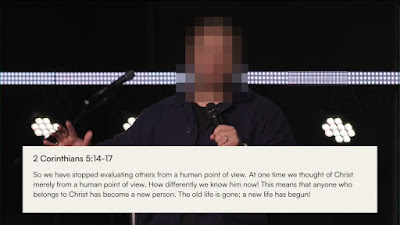Rightly Dividing or Wrongly Destroying: Exposing the Assault on Paul and the Word of Truth
False View Warning: A Tainted Doctrine Ahead
The following is a distorted perspective that elevates Jesus’ earthly teachings while rejecting the authority of Paul’s epistles, claiming they contradict Christ. This view misuses Scripture, applies a flawed interpretive lens (“Unity/duality”), and undermines the dispensational distinction between Jesus’ ministry to Israel and Paul’s revelation for the Body of Christ. It’s important to understand what some people believe—so we can rightly divide and correct it.
False View: A Sample of Tainted Doctrine from a comment I received
Some believe that Christians should follow Jesus Himself—not Paul, Peter, or any other apostle. They argue that Catholics follow a Pope who follows Peter, a dead Apostle, and Protestants (many unknowingly) follow Martin Luther, who followed Paul (also a dead Apostle). In contrast, they claim that true Christians should only love Jesus, the Son of God. Using a “Unity/duality” filter, they reinterpret verses by replacing terms like “evil” or “enemy” with “the person's name” to prove deity versus the fallibility of man's teachings and that only Jesus’ words make logical sense. Let me give a few examples:
To understand the “Unity” of Jesus Himself, they suggest putting His name in the "target" of His Own Words. For example:
- Matthew 5:39—"Resist not evil" becomes [Resist not Jesus.]
- Matthew 5:44—"Love thine enemies" becomes [Love your Jesus] / [Love your Christ]
They claim this makes logical sense and reflects true unity.
Then they apply the same “Unity/duality” filter to Paul’s words to expose what they see as contradiction or distortion. For example:
- Ephesians 6:11—"Put on the full armor of God, so that you can make your stand against the devil’s schemes" becomes [Put on the full armor of Paul, so that you can make your stand against Paul’s schemes]
They argue this reveals duality, not unity. The same filter is applied to other apostles, such as James 4:7—“Submit yourselves, then, to God. Resist the devil, and he will flee from you,” which becomes [Submit yourselves, then, to James. Resist James, and he will flee from you.]
They conclude that only Jesus’ teachings reveal true unity, while apostolic writings reflect duality. Paul is especially criticised, with his teachings referred to as “divine taurum stercore” (Latin for “divine bull dung”). The post urges readers to reject Paul and listen only to Jesus Himself.
Numerous contrasts between Jesus’ teachings and Paul’s writings are listed to support this claim—these will be addressed and corrected later in the article.
















